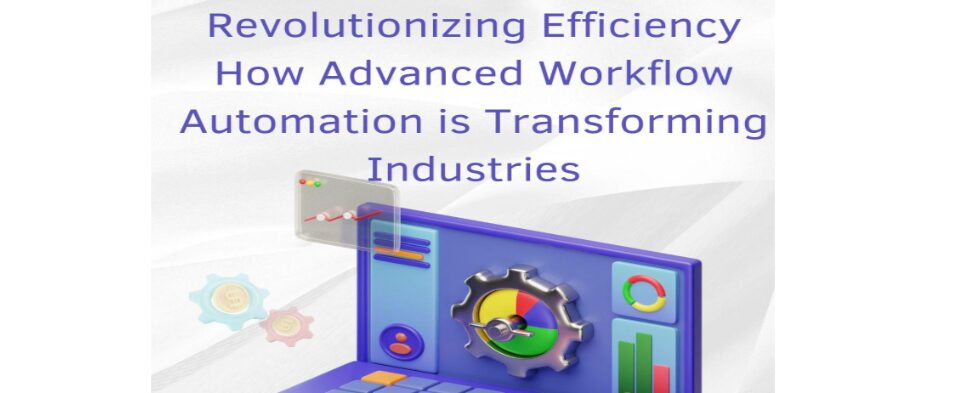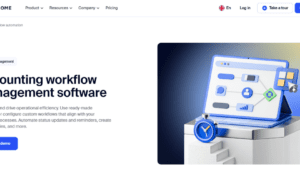As digital transformation accelerates, automation is revolutionizing industries by enhancing efficiency and redefining operations. Kamala Kannan Munusamy Ethirajan, an enterprise automation expert, examines how advanced technology is transforming healthcare, manufacturing, and research. With seamless integration and optimized workflows, these innovations drive productivity, streamline processes, and improve overall performance, positioning automation as a key force in modernizing industry standards and operational excellence.
Empowering Healthcare with Digital Precision
The integration of advanced automation systems into healthcare services has transformed patient care delivery. Intelligent workflow automation has significantly reduced manual processes, cutting patient wait times by 60% while improving overall resource utilization. Electronic Health Record (EHR) integration further enhances efficiency, reducing documentation time by 35% and boosting data accuracy to an impressive 98%. By automating clinical pathways, healthcare providers have achieved a 42% reduction in treatment delays, ensuring that patients receive timely and effective care.
Security and compliance remain critical in healthcare, and modern automation platforms address these concerns through multi-layer encryption and rigorous compliance monitoring. Regulatory adherence is strengthened, with automated reporting reducing audit preparation time by 75% and ensuring continuous compliance.
Manufacturing’s Leap into the Future with Smart Automation
The manufacturing sector has witnessed a substantial shift with the adoption of automated workflow management systems. Digital work order automation has cut manual processing time by 60% while improving scheduling accuracy to 99.5%. This transformation has led to a 42% reduction in production conflicts and a 35% improvement in resource utilization.
Predictive maintenance frameworks powered by IoT sensor networks have significantly enhanced equipment reliability. By monitoring real-time machine conditions, manufacturers have reduced unplanned downtime by 55% and extended machinery lifespan by 40%. Automated quality control systems have further refined production accuracy, minimizing defects and ensuring consistency across production lines.
Redefining Research Management through Automation
Scientific research institutions have also embraced automation, streamlining project management and grant application processes. Automated grant management systems have expedited application approvals, reducing processing time by 55% while improving submission accuracy by 85%. These advancements have alleviated administrative burdens, allowing researchers to focus on core investigative pursuits.
Resource allocation efficiency has improved significantly, with a 40% increase in scheduling precision and a 65% decrease in booking conflicts. Automated compliance monitoring has also enhanced regulatory adherence, achieving a 99.9% compliance rate and reducing audit preparation times by 75%. With real-time data tracking and secure storage, researchers can collaborate across institutions seamlessly, improving research outcomes and knowledge sharing.
Security and Performance at the Forefront
As industries embrace digital transformation, security and performance take center stage in ensuring seamless operations. Automated security systems now process over 50 million encrypted transactions daily, safeguarding data integrity and protection. Role-based access control mechanisms have further bolstered security, ensuring compliance with stringent industry regulations.
Meanwhile, performance optimization through advanced cloud infrastructure enables organizations to maintain 99.99% system uptime while managing millions of transactions per second. AI and machine learning-powered automated decision support systems are revolutionizing predictive analytics, significantly improving resolution accuracy by 75%. These advancements enhance response times in critical operations, reducing downtime and boosting operational efficiency. As technology evolves, the integration of security, automation, and AI-driven analytics continues to strengthen digital ecosystems, paving the way for a more resilient and intelligent future.
Looking Ahead: AI, IoT, and Enhanced Integration
The future of automation is set for significant advancements, particularly with the integration of AI and IoT. AI-driven automation is anticipated to reduce manual interventions by 80%, streamlining operations and boosting efficiency. Predictive analytics will refine decision-making processes, enabling proactive strategies. Meanwhile, IoT-enabled automation will enhance connectivity, supporting up to half a million devices per instance. This evolution will revolutionize operational intelligence across industries, driving smarter, more efficient, and seamlessly connected digital ecosystems for the future.
In conclusion, as organizations embrace digital advancements, automation continues to enhance efficiency, reduce costs, and strengthen security. Kamala Kannan Munusamy Ethirajan highlights its transformative impact in streamlining processes, optimizing workflows, and fostering innovation. By building intelligent and secure digital ecosystems, automation is shaping the future of industries. As technology evolves, it will remain integral to operational growth, driving smarter, more efficient, and scalable solutions across various sectors.

































